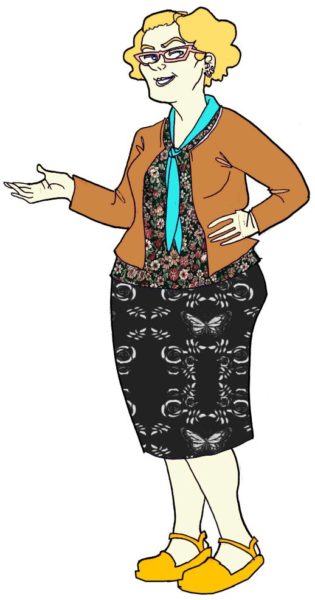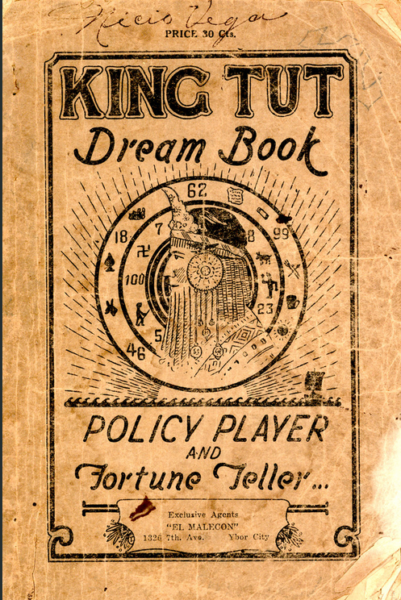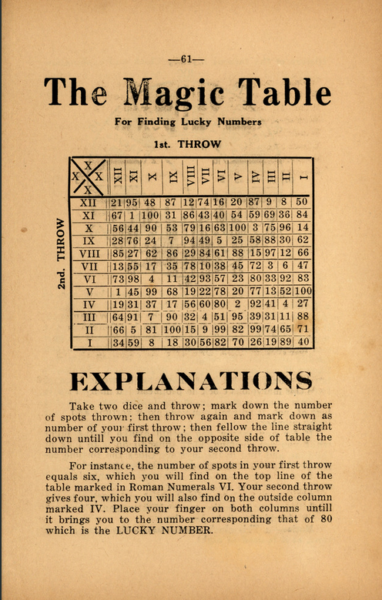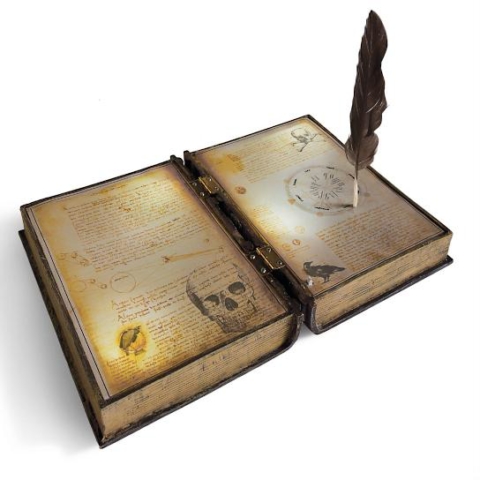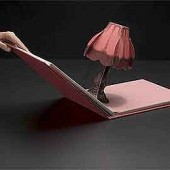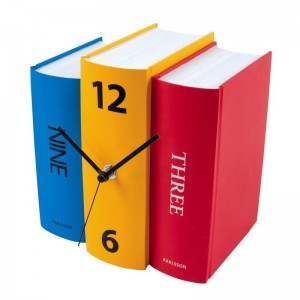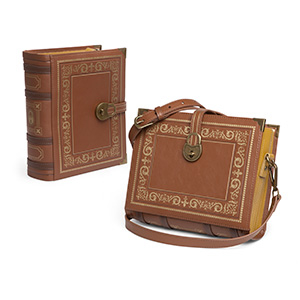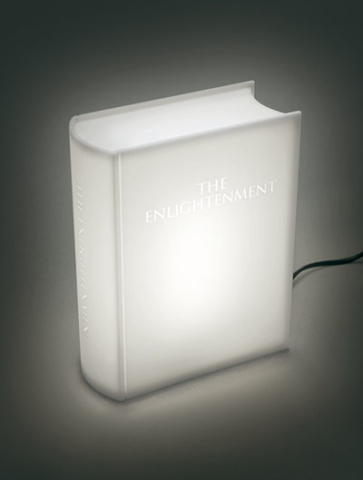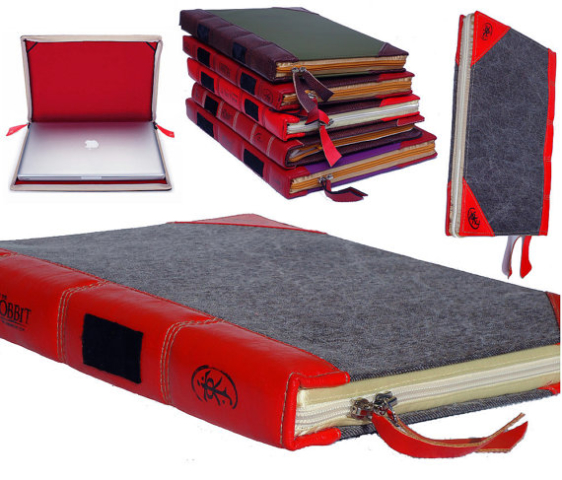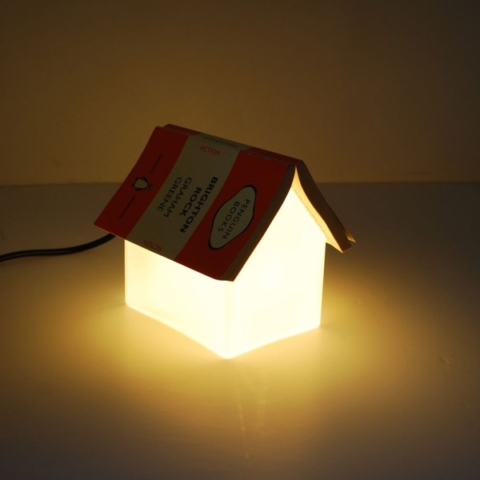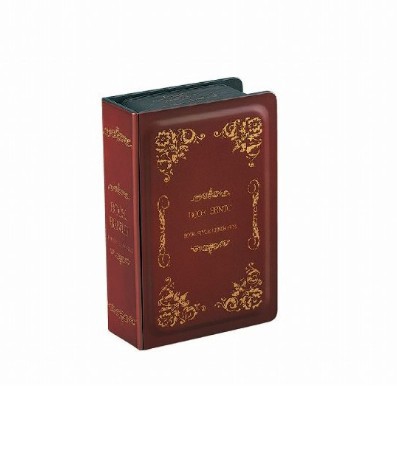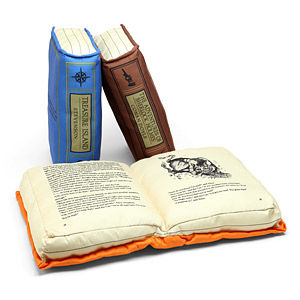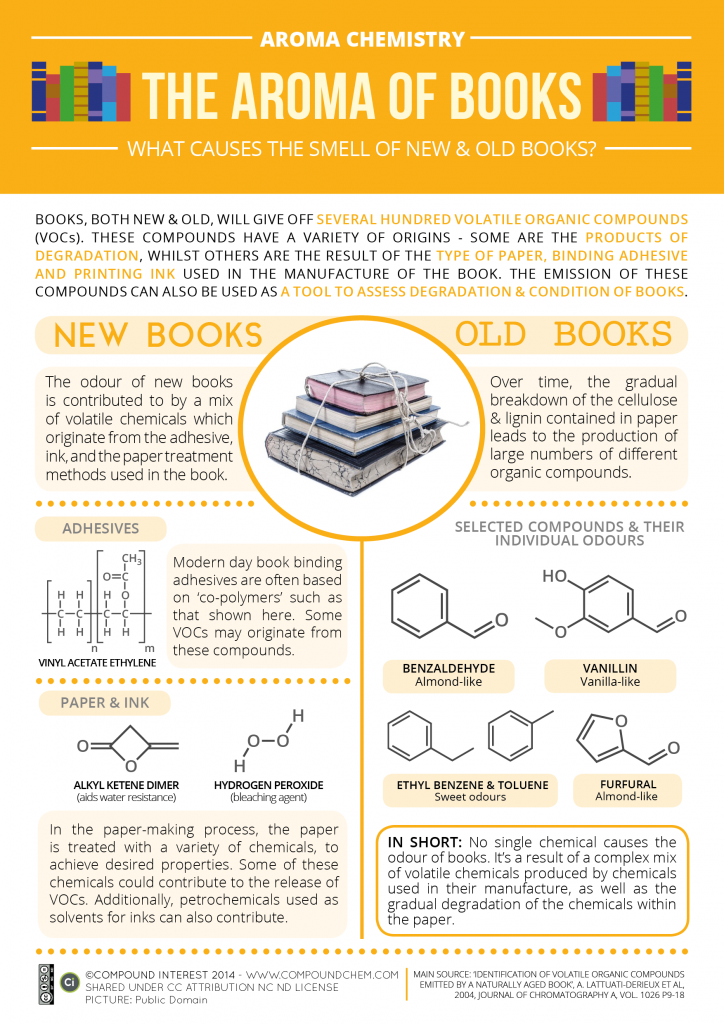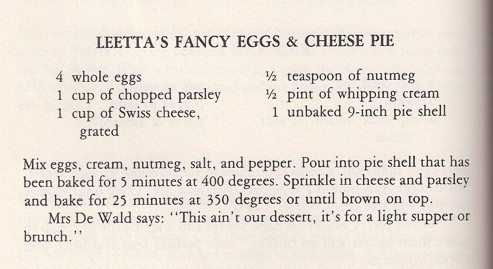
Allow me to preface this little trip to information you most likely have no use for with an explanation of how it came about. Theseus by Jake Wyatt swaggered into my feed reader for free comics day (it’s been a while I know) and I had to follow it to The Anthology Project where it was included in volume 2. While there, hitting the ‘add to cart’ button, I felt compelled to add volume 1 as well and possess both. I highly recommend these books, they are beautiful and chock full of fabulous talent. The books arrived a few days ago and while I was thumbing through volume 1 I noticed that it smelled amazing. Now I’m not a book sniffer normally. I appreciate pleasant inky/papery smells that make it to my nose, while reading, drawing, and whatnot, but I’ve never sought them out. I work in a library – believe me, the smells that end up on the books I most come to contact with are not the kind I want any where near my face. This is why volume 1’s scent took me by surprise and why I then proceeded to smell every book in my to-read stack. Volume 1 of the Anthology Project was definitely the best smelling one. Volume 2 couldn’t even stand up to it. I began wondering if paper, in the book printing industry, was marketed with any reference to smell. This is how it began.
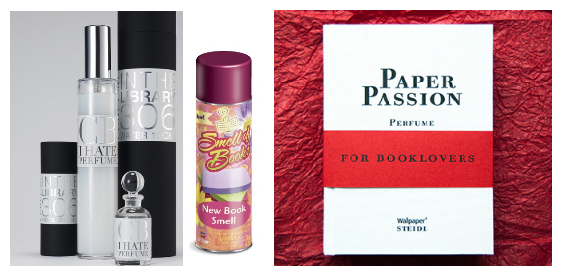
I can’t say I was really surprised to find a whole host of people talking about their love for the smell of the printed book. Many people have asked the question: why do books smell in the particular way that they smell? The answer varies from book to book and printing process to printing process. For old books, decay of the organic components, especially the lignin (related to vanillin) creates a sweet musky scent many have fallen in love with. That is, of course, if the book hasn’t molded or mildewed or been in a house with a smoker or a cat.
I was surprised to find that part of the great e-book debate, among consumers at least, was directed towards the fact that e-books didn’t smell like books. This brings us to book perfumes. I’ve run into them before. Specifically, I’d run into CB I Hate Perfume‘s In the Library before. New Book Smell from Smell of Books seems created specifically for scenting your e-reader. Other scents are available: Classic Musty Smell, Scent of Sensibility, Eau You have Cats, and Crunchy Bacon Scent. Steidl‘s Paper Passion, is by far the poshest of all bookish scents and made quite a few waves when it was created.
However, book perfumes weren’t going to answer my question about the book printing industry’s awareness or use of scent. I have to admit, I have only searched enough to get a larger picture of the components of a new book’s smell. I would not term my search exhaustive. It was more of a lark, really. I’m not even sure if I’ve managed or can answer my question. Here is what I found.
Paper itself doesn’t seem to be marketed in regards to smell at all, but their are plenty of reasons why the smell of any paper would vary. First is most likely the type of wood used in making the paper. There are a handful of pulpwoods (that is, woods often used in making paper): acacia, aspen, birch, eucalyptus, maple, pacific albus, pine, and spruce. Balsam fir has been a large supplier of pulpwood for paper in U.S. and aspen is heavily used in Canada.
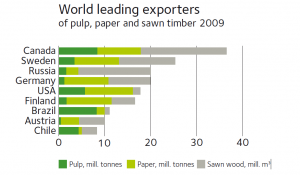
Canada, thanks to the Swedish Forest Industries Facts and Figures 2010 (http://www.forestindustries.se/facts_and_figures), is one of the world’s largest exporters of pulp and paper. So aspen woodpulp is most likely found in much of the paper floating around the world. But paper makers are pretty crafty when it comes to getting raw materials. Pulp and chips from construction byproduct, recycling, forest thinning, and fire damage can all be present in paper woodpulp.
Of course, after the tree is chosen and felled there are a variety of ways to pulp it. High quality papers are most often chemically pulped – a process that removes the lignin from the wood fiber. After this the fibers are bleached. Without as much lignin content, I am guessing that our industrial aged paper books are not going to smell the same as those faintly vanilla antiquarian books. By the by, chemical pulping is why paper mills often smell like rotten eggs – a sulfur like gas is created as a byproduct.
But then, the paper itself is only part of what makes a new book smell. There is ink as well, and, as I am a long time collector of pens and user of paints and pigments, I am very familiar with how varieties of ink smell very differently from each other. I found a few mentions of ink that were specifically marketed with scent in mind. Most of these, or I should say all of these, were devoted to children’s books. I found smells of rose and citrus first and then I found Smellessence books for children. Smellessence is creating characters and stories with the intention of weaving together the smell of the story into a child’s reading experience. This is where my information trip ends.
Basically, I don’t think there is any special reason why Volume 1 of the Anthology project smells so good. It is a combination of ingredients and timing that sometimes makes for a fantastic olfactory experience in a book. I did learn a whole lot more about an industry I’ve taken for granted. Verdict: learning done for now.
Mentioned in the search:
- US Forest Service
- Wikipedia
- Swedish Forest Industry
